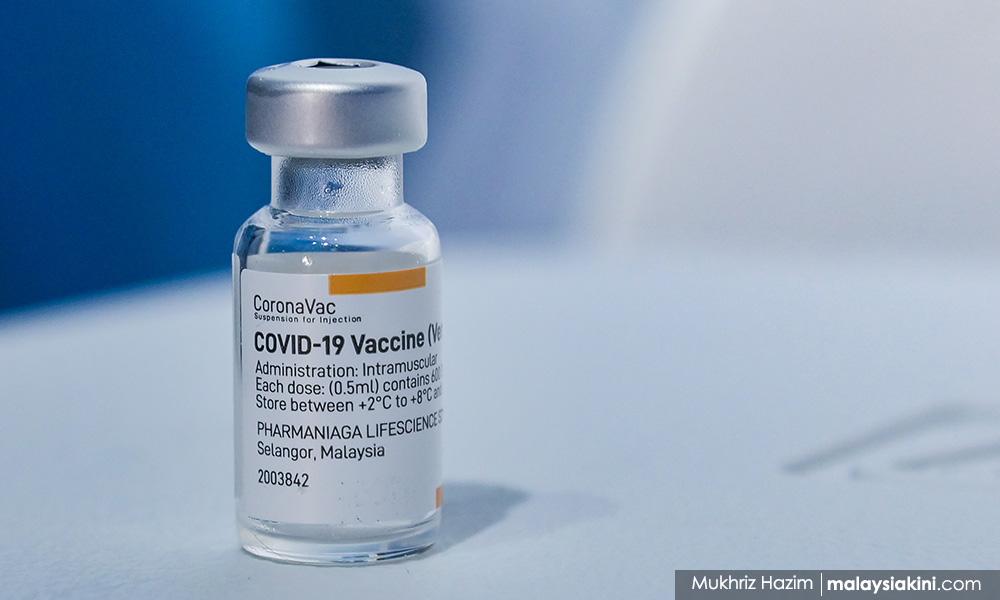The AstraZeneca and Sinovac Covid-19 vaccines are now deemed suitable by the Health Ministry to be administered to both breastfeeding and pregnant women within 14 to 33 weeks of gestation.
This is an update to earlier advice which deemed only Pfizer to be the safe choice for pregnant women given real-world data proving its safety, while Sinovac was not to be administered to both pregnant and breastfeeding women.
The update was announced by the Special Committee on Ensuring Access to Covid-19 Vaccine Supply (JKJAV) today.
“Studies have shown that all Covid-19 vaccines currently used in Malaysia (Pfizer, AstraZeneca and Sinovac) are suitable for these groups,” it said, referring to pregnant and breastfeeding women.
According to an updated Health Ministry guideline dated June 23, sighted by Malaysiakini, mRNA vaccines like Pfizer are still “the preferred vaccine” for pregnant and breastfeeding mothers.
However, the ministry has updated its advice in terms of Sinovac following World Health Organisation’s interim guidelines on its use during pregnancy.
“Sinovac is recommended for pregnant and breastfeeding mothers as the benefits outweigh the potential risk from the vaccine despite the lack of safety data related to the use of Sinovac in pregnancy.
“In principle, live vaccines are contraindicated in pregnancy, while Sinovac, being an inactivated vaccine, is not,” the guideline read.
Women who have taken the first dose of Sinovac prior to pregnancy should take the second dose after 14 weeks of gestation, it added.
On AstraZeneca, it said the vaccine was not unsafe for pregnant and breastfeeding women but such recipients are advised to consult with their doctors before making an informed decision.
“Although there are no reported concerns with the use of AstraZeneca vaccine among pregnant and breastfeeding mothers, there is less published data on this vector-based vaccine compared to the mRNA vaccine.
“Thus mRNA-based vaccines such as Pfizer BioNTech remain the preferred option based on the availability of safety data by the Ministry of Health Malaysia,” the guideline read.
In May, Brazil suspended the use of AstraZeneca on pregnant women fearing possible blood clots for which the risks are higher in this group, while in the UK, pregnant women are allowed to choose another vaccine if offered AstraZeneca.

A vector-based vaccine uses a modified version of a different virus (the vector) to deliver important instructions to cells while an inactivated vaccine (a killed vaccine) is a vaccine comprising virus particles, bacteria or other pathogens that have been grown in culture and then killed to destroy any disease-producing capacity.
'No mixing vaccines or single-dose shots'
Meanwhile, the guideline does not recommend the use of single-dose vaccines like the CanSino and Janssen (Johnson & Johnson) vaccines recently approved for use in Malaysia, even though they are both vector-based.
It said this was because there was still very little data on the use of these two vaccines on pregnant and breastfeeding women.
The guideline also does not recommend the mixing of different vaccines for pregnant women “until more robust evidence is available” adding studies supporting the mixing of vaccines have not involved subjects who are pregnant.
“It is reasonable to maintain the same type of vaccine for now. This is particularly sensible in pregnancy and breastfeeding.”
Pregnant women are prioritised for vaccination as studies show they are at higher risk of severe illness needing ventilation and death. The risk of miscarriage or stillbirth is also high if infected with Covid-19.
Earlier this year, Hospital UiTM head nurse Artini Dzolkarnaini, 41, died of Covid-19 after delivering her daughter at 30 weeks of gestation in an emergency Cesarean section so she could be intubated.
Since then, there have been other reports of pregnant women being forced to deliver their babies prematurely because they needed to be intubated. The number of pregnant women infected with Covid-10 and requiring intubation or dying of the virus in Malaysia has not been published.
On Monday, the minister in charge of the National Covid-19 Immunisation Programme (NIP), Khairy Jamaluddin said close to 100,000 pregnant women have been vaccinated in Kuala Lumpur and Perlis.
“More will be vaccinated in Kuala Lumpur and Perlis this weekend while those in other states will be processed in stages according to their estimated due dates,” he said. - Mkini




No comments:
Post a Comment
Note: Only a member of this blog may post a comment.